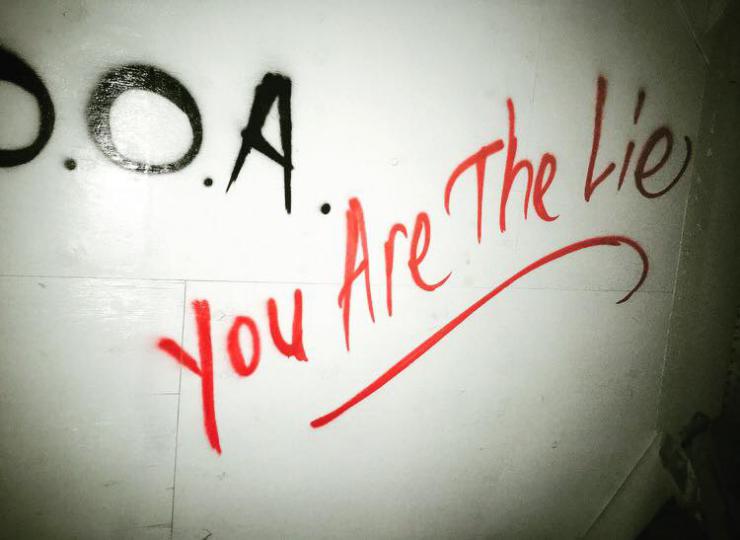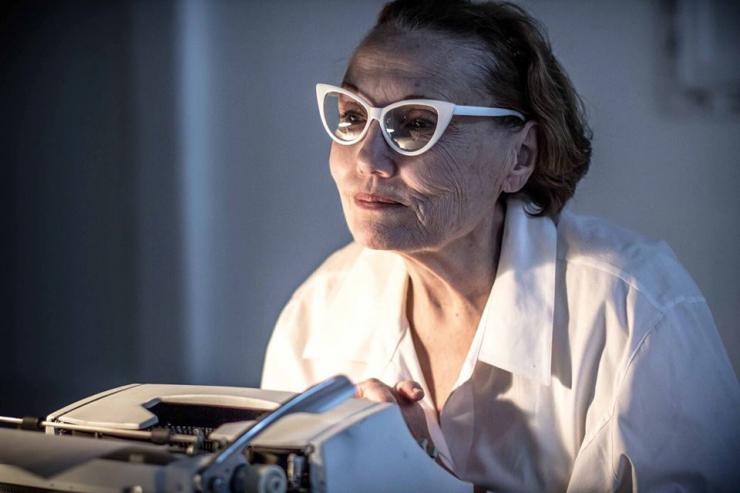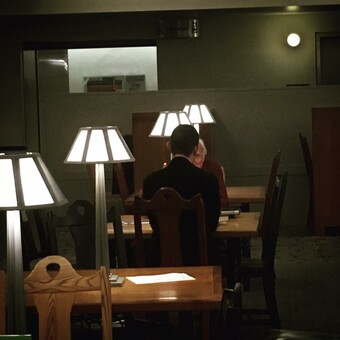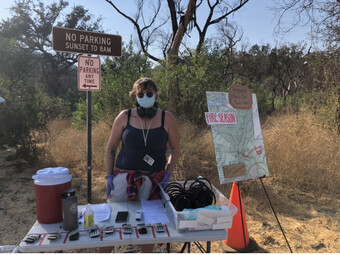My Tension Experience, Part 2
In this special two-part series, designer Megan Reilly talks about her participation in an innovative piece of horror immersive theatre that has stretched "performance" across live events, phone calls, secret meetings, and interactions with characters over several months. The first part of The Tension Experience ran from February 2016 until September 7 (or so we've been led to believe); the second part called Ascension, open to the general public, opened in Los Angeles on September 8, 2016.
Let’s just get this part out of the way: in case you’ve been holding your breath since part one. On September 23, I was sacrificed to a god while others Ascended. I didn’t make it out of my Tension Experience alive.
Let me back up though. The Tension Experience: Ascension is the wildly ambitious blending of immersive theatre, “haunts,” and escape rooms from director Darren Lynn Bousman and writer Clint Sears. Indoctrination, which was the Alternate Reality Game (ARG) I participated in this summer, was a preamble to the major, stand-alone production that is Ascension.
The narrative behind Ascension is that you, the audience, are joining a cult and undergoing “tests” to see if you are worthy of membership.

Ascension is the first time I have seen an immersive production try to integrate game mechanics on such a large scale. I’ve previously written for HowlRound about games and theatre, but Ascension is the closest I have ever experienced to a truly interactive, immersive piece of art that you can “play” if you’re willing. I believe this is the director’s first foray into immersive theatre, and there is a lot to talk about regarding familiar subjects (i.e. its game logic, its audience agency, etc). I had mixed feelings after my experience, and I wish that I could go back and see it again. Bouseman has said he had a similar relationship to Sleep No More, his main inspiration for Ascension, and I wonder how close my experience of his work mirrors his experience of Punchdrunk’s long running New York production.
As the night began, I was riding inside a van with a hood over my head, ignorant of where I was being taken. After awhile, we came to an abrupt stop and the door opened. The hood was removed, and I was pulled out. The van screeched off and a man pointed to a door on the side of a building. “Wait two seconds, then knock as loud as you can.”
I was ushered through a waiting room (filling out forms, being told the safe word, and having a strange encounter alone with the main character) and into a large family room. The other members of my group were there—you experience Ascension in a group of ten, and after being separated in the van ride, you’re reunited and given some time to explore the room. I focused on interacting with performers in the room, and had a couple of moving moments as a result.

The narrative behind Ascension is that you, the audience, are joining a cult and undergoing “tests” to see if you are worthy of membership. Eventually myself and two others were led into the next room, where we were made to strip down to underwear and put on white jumpsuits. The experience picked up steam and never slowed down. Shortly after that, I felt I lost all agency—to what extent that is true remains unclear to me. And this is the point where immersive theatre/game mechanics/critical Megan really kicked in.
The rest of the experience takes the audience through different sequences of rooms, depending on choices individuals make. One room in particular focused on the escape room element with a timed series of questions. Truthful answers resulted in keys, which would lead to an exit. It was a radical change that left me pondering how to incorporate puzzles into a narrative without disrupting its flow. When I play video games, I’m frequently looking for ones in which the plot doesn’t screech to a halt for a puzzle. That kind of integration is not easy to achieve; Gone Home is one of the few successes. Ascension could break ground if that integration is developed and incorporated into its performance.
Although you are ostensibly making choices, it’s difficult to tell when you are doing this. There is no “heads up” display that tells you: “This decision will have consequences.” And the issue of agency is confusing because you’re given direct orders, and told that disobedience will end your experience. At one point I was blindfolded, bound, and forced to drink something awful. It was later hinted to me that I didn’t have to drink anything, that I always had a choice—but at the time, it felt as if at that point I had no choices. The director has made it clear that his vision involves no hand-holding, and I want to respect that. And one of his stated goals with Ascension is to push audiences outside of their comfort zones. However, when an audience doesn’t know how to act, that confusion is what’s making them uncomfortable. Lack of hand-holding is great, but it may be problematic if your audience doesn’t realize they have more autonomy.

Still bound in the next sequence, I was manhandled and pushed through a space. Since I’ve just completed a year of physical therapy, the only thing I was thinking was “please don’t be incompetent.” Bousman wants his audience present. During this, was I present? Absolutely. But was I present in the way intended? I would argue that the artist needs to be clear what sort of “presence” is being sought. Is it enough for me to “be here now” in the warehouse, or do you want me to believe that I’m joining a cult? Is it awareness of my physical body? Emotions? Fear?
In the end, the rest of my cohort (who all had wildly different experiences that evening!) looked on as I was led onstage, and bound to a chair. Once again I was blindfolded, I could only hear the chaos that the others saw. I know that they tried to save me, which took the actors by surprise—not a choice they were expecting some to make.
Bousman and Sears have stated they intend to continue with Tension, furthering the story using transmedia and immersive theatre. They continue to evolve Ascension during its run, changing it in response to audiences each night. My sense is that by the time it closes, it will have evolved into a different show entirely.







Comments
The article is just the start of the conversation—we want to know what you think about this subject, too! HowlRound is a space for knowledge-sharing, and we welcome spirited, thoughtful, and on-topic dialogue. Find our full comments policy here